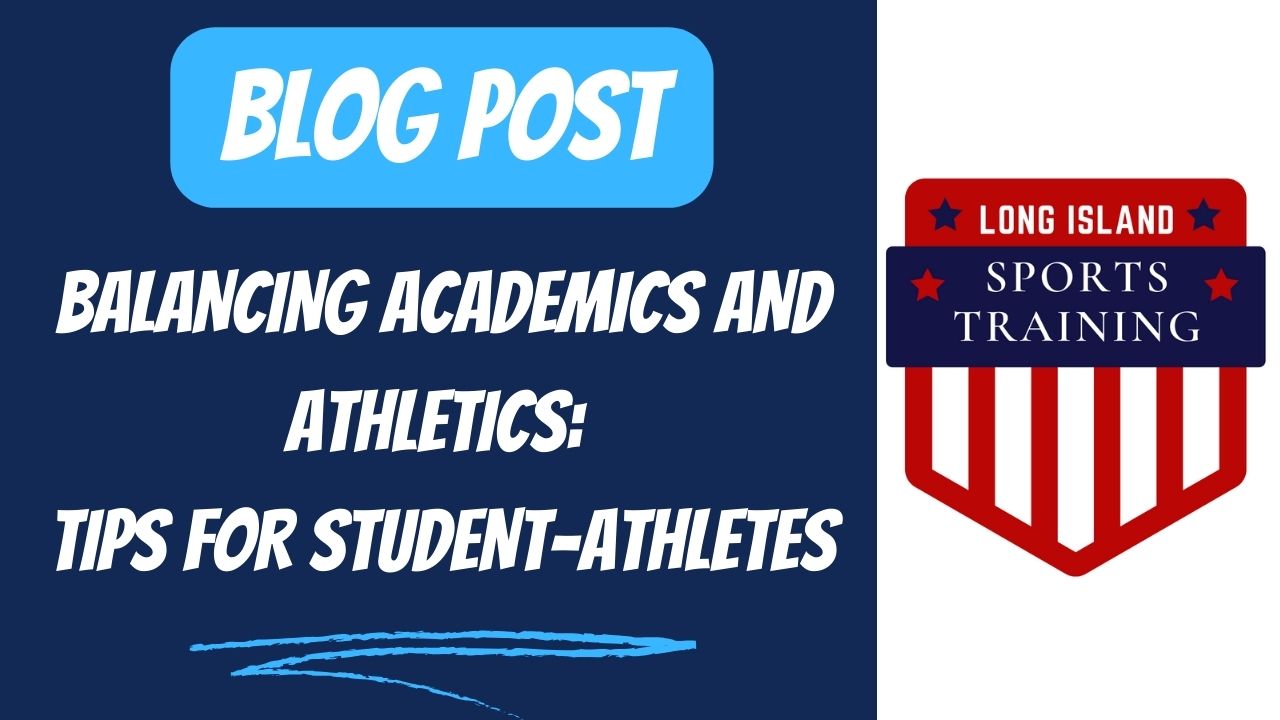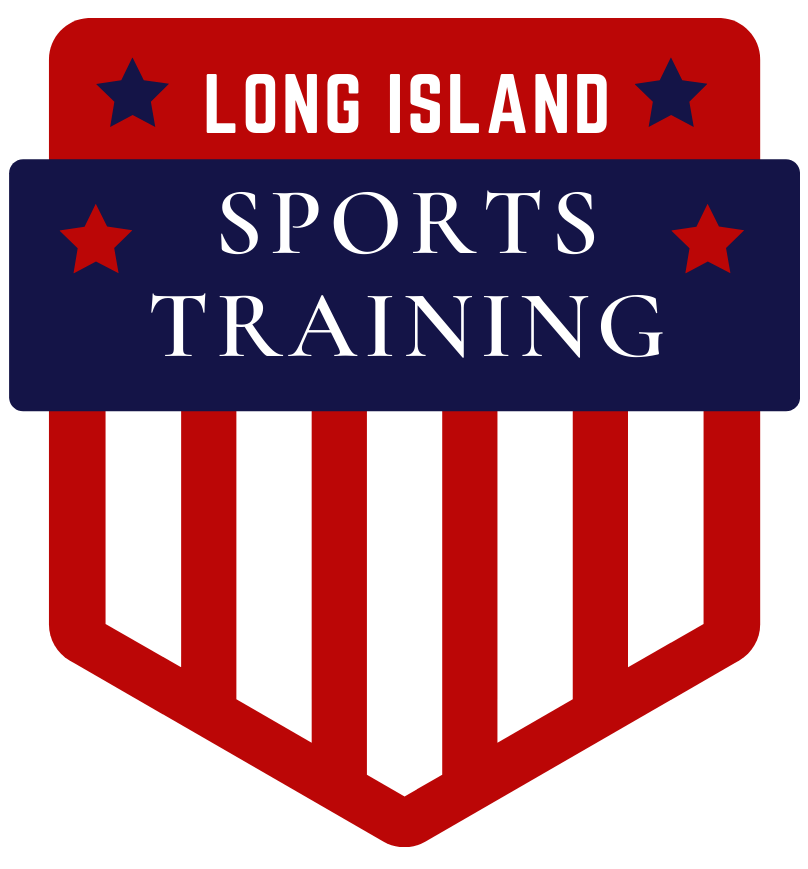Balancing Academics And Athletics: Tips for Student-Athletes
 Balancing Academics And Athletics: Tips for Student-Athletes
Balancing Academics And Athletics: Tips for Student-Athletes
In this blog, Balancing Academics and Athletics: Tips for student athletes, we will be providing tips to student athletes for balancing academics and athletics. These invaluable tips are geared towards helping student-athletes navigate the demanding terrain where intellectual pursuits meet physical prowess.
Whether you’re a student-athlete looking to refine your approach or an aspiring one gearing up for the journey ahead, this guide is your compass for achieving a harmonious synergy between the academic arena and the sports field.
Join us as we explore practical strategies to harmonize the pursuit of academic success with the commitment to athletic achievement, providing a playbook for those seeking to master the intricate dance between books and sports gear.
Tips For Balancing Academics And Athletics For Student Athletes

Being a student-athlete is a unique and rewarding experience, but it comes with its own set of challenges. Juggling academic responsibilities alongside the demands of sports can be a daunting task, requiring careful planning and effective time management.
Here are some valuable tips to help student-athletes strike a balance between excelling in the classroom and on the field.
- Create a Realistic Schedule: Develop a detailed schedule that includes dedicated time for classes, study sessions, practices, and competitions. Ensure that your schedule is realistic, considering both academic and athletic commitments. Stick to your schedule as much as possible to establish a routine that works for you.
- Prioritize and Set Goals: Identify your academic and athletic priorities, setting clear and achievable goals for both. Understanding your priorities will help you allocate time efficiently and focus on what truly matters. Break down your goals into smaller, manageable tasks to stay organized.
- Effective Time Management: Time management is crucial for student-athletes. Use tools like planners, calendars, or apps to organize your tasks and deadlines. Learn to prioritize tasks based on urgency and importance, ensuring that you stay on top of both academic assignments and training sessions.
- Utilize Downtime Wisely: Student-athletes often have downtime between classes or during travel for competitions. Use this time productively by reviewing class notes, reading assigned materials, or working on assignments. Maximizing downtime can help you stay ahead in your studies and reduce stress.
- Communicate with Coaches and Teachers: Open communication is key. Keep your coaches and teachers informed about your schedule and commitments. Establishing clear lines of communication helps build understanding and may lead to more flexible arrangements when needed.
- Take Advantage of Support Systems: Whether it’s academic tutors, coaches, or fellow student-athletes, utilize the support systems available to you. Seek guidance when needed, whether it’s for academic assistance or managing the demands of your sport.
- Maintain a Healthy Lifestyle: Balancing academics and athletics requires a healthy body and mind. Prioritize proper nutrition, sufficient sleep, and regular exercise. A well-maintained lifestyle contributes to improved focus, energy levels, and overall well-being.
- Plan for Rest and Recovery: Recognize the importance of rest and recovery in your overall performance. Adequate sleep and relaxation are essential for both academic success and athletic achievement. Incorporate rest days into your training schedule to prevent burnout.
- Stay Flexible and Adapt: Flexibility is key when balancing the demands of academics and athletics. Be prepared to adapt your schedule based on unexpected events or changes in your academic or sports calendar. The ability to adjust and stay resilient is a valuable skill.
- Reflect and Evaluate: Regularly reflect on your schedule and commitments. Evaluate what’s working well and what needs improvement. Adjust your strategies as necessary to maintain a healthy balance between academics and athletics.
By implementing these tips, student-athletes can navigate the challenges of managing academic and athletic responsibilities successfully.
Remember, finding the right balance is a personal journey, so be patient with yourself as you refine your approach to achieve both academic and athletic excellence.
Why Is Balancing Academics And Athletics Difficult For Some Students Athletes
Balancing academics and athletics poses a unique challenge for many student-athletes due to several reasons:
- Time Constraints: Student-athletes often have demanding training schedules, competitions, and travel commitments, leaving limited time for academic pursuits. The time-intensive nature of sports can make it challenging to meet academic deadlines and engage in thorough study sessions.
- Physical and Mental Fatigue: Engaging in rigorous physical activity can lead to both physical and mental fatigue. After intense training sessions or competitions, students may find it difficult to maintain focus and energy for academic tasks, impacting their overall academic performance.
- Travel Commitments: Student-athletes frequently travel for competitions, disrupting their regular class attendance and study routines. Keeping up with coursework while on the road can be challenging, leading to gaps in learning and potential academic setbacks.
- Pressure to Perform: The pressure to excel both academically and athletically can be overwhelming. Balancing high performance expectations in both domains may create stress and anxiety, affecting a student-athlete’s ability to concentrate on their studies.
- Lack of Flexibility: Academic schedules may not always align with sports commitments, leading to conflicts. Inflexible class timings or exam schedules can make it difficult for student-athletes to strike a balance and may require special arrangements or accommodations.
- Dual Commitments: Student-athletes essentially have two full-time commitments – academics and sports. Balancing the workload from both spheres can be akin to managing two jobs simultaneously, requiring exceptional time management skills and discipline.
- Inadequate Support Systems: Some student-athletes may lack access to proper support systems, such as academic tutors or resources for time management. Without the necessary assistance, they may struggle to keep up with coursework while pursuing their athletic goals.
- Transition Periods: Adjusting to the demands of college-level academics and athletics simultaneously can be particularly challenging for freshmen student-athletes. The transition from high school to college brings new academic challenges, and adapting to a higher level of competition in sports requires additional effort.
- Personal Sacrifices: Student-athletes often face the need to sacrifice social activities and personal time to meet the demands of both academics and athletics. This constant juggling act can lead to burnout and impact their overall well-being.
- Unpredictable Nature of Sports: Injuries, unexpected game changes, or a sudden increase in training intensity can disrupt a student-athlete’s academic routine. The unpredictable nature of sports can make it challenging to maintain a consistent academic schedule.
Addressing these challenges requires a combination of effective time management, open communication with coaches and teachers, and access to appropriate support structures to ensure that student-athletes can thrive both academically and athletically.
Best Support Systems For Student Athletes To Balance Academics And Athletics
Student-athletes can benefit from a variety of support systems to help them navigate the challenges of balancing academics and athletics.
Here are some key support structures:
- Academic Advisors: Dedicated academic advisors can assist student-athletes in planning their course schedules, managing academic requirements, and ensuring they stay on track for graduation. These advisors can offer guidance on academic policies and help create a balanced academic plan.
- Tutoring Services: Access to tutoring services provides additional academic support. Tutors can assist with specific subjects, help review coursework, and provide guidance on effective study strategies, particularly during times when athletes are on the road for competitions.
- Athletic Academic Support Centers: Many universities have specialized academic support centers for student-athletes. These centers offer tailored resources, study spaces, and academic assistance, recognizing the unique challenges faced by those balancing sports and academics.
- Flexible Learning Options: Institutions can provide flexibility in class schedules, allowing student-athletes to balance their academic commitments with training and competition schedules. Online classes or recorded lectures can be particularly beneficial for accommodating travel and training demands.
- Coaches and Sports Staff: Open communication with coaches and sports staff is crucial. Coaches who understand the importance of academics can help create an environment that supports both athletic and academic success. Regular check-ins and discussions about the student-athlete’s schedule can aid in planning effectively.
- Time Management Workshops: Workshops or seminars focused on time management skills can be beneficial for student-athletes. Learning effective strategies to prioritize tasks, set goals, and manage time efficiently can contribute to success both on the field and in the classroom.
- Peer Support Groups: Forming peer support groups with fellow student-athletes allows individuals to share experiences and strategies for balancing academics and athletics. This sense of camaraderie can provide emotional support and practical advice.
- Nutritional Guidance and Fitness Support: Proper nutrition and fitness are integral to a student-athlete’s overall well-being. Access to nutritionists and fitness trainers can ensure that athletes maintain their physical health, which, in turn, positively impacts their academic performance.
- Counseling Services: Mental health is a crucial aspect of a student-athlete’s well-being. Access to counseling services can help them navigate stress, anxiety, and the pressure to perform. Mental health professionals can offer coping strategies and emotional support.
- Financial Aid and Scholarships: Ensuring that student-athletes have access to financial aid and scholarships can alleviate some of the financial burdens associated with pursuing higher education. This support can reduce stress and allow athletes to focus more on their academic and athletic goals.
Combining these support systems creates a comprehensive framework that addresses the diverse needs of student-athletes, promoting success both inside and outside the classroom.
Institutions and athletic programs that prioritize these support structures contribute to the holistic development of their student-athletes.
Benefits Of Being A Good Student Athlete
Being a good student-athlete comes with a range of benefits that extend beyond the field and the classroom. Here are several advantages:
- Time Management Skills: Balancing academics and athletics hones strong time management skills. Student-athletes learn to efficiently allocate their time, prioritize tasks, and meet deadlines, skills that are valuable in various aspects of life.
- Discipline and Work Ethic: The commitment required to excel both academically and athletically fosters a strong work ethic and discipline. Student-athletes understand the importance of consistent effort and hard work in achieving their goals.
- Teamwork and Collaboration: Sports often emphasize teamwork and collaboration. Student-athletes learn to work effectively with teammates, coaches, and classmates, developing interpersonal skills that are transferable to professional and personal settings.
- Leadership Qualities: Many student-athletes naturally assume leadership roles within their teams. Whether as team captains or supportive teammates, these experiences cultivate leadership qualities that are valuable in various aspects of life.
- Goal Setting and Achievement: Student-athletes regularly set and pursue both academic and athletic goals. This practice instills a mindset of goal-oriented achievement, helping them navigate challenges and stay focused on long-term objectives.
- Physical and Mental Health Benefits: Engaging in regular physical activity contributes to better physical health, including improved cardiovascular health, increased strength, and enhanced endurance. Additionally, sports participation is associated with positive mental health outcomes, including stress reduction and improved mood.
- Networking Opportunities: Participation in sports often provides opportunities for networking. Student-athletes may connect with teammates, coaches, alumni, and other individuals within their sport, creating a valuable network that can extend into their professional lives.
- Character Development: Overcoming challenges in both academics and athletics contributes to character development. Student-athletes develop resilience, perseverance, and a positive attitude in the face of adversity, qualities that are beneficial throughout life.
- Enhanced Academic Performance: Studies have shown that student-athletes, on average, perform as well as or better than their non-athlete counterparts academically. The discipline and time management skills acquired through sports can positively impact academic success.
- Scholarship Opportunities: Excelling as a student-athlete can open doors to scholarship opportunities, easing the financial burden of higher education. Scholarships are often awarded based on both academic and athletic achievements.
- Camaraderie and Social Integration: Being part of a sports team provides a sense of camaraderie and social integration. Student-athletes build strong friendships, creating a support system that extends beyond the playing field and classroom.
In summary, being a good student-athlete offers a well-rounded set of skills and experiences that contribute to personal and professional success.
The combination of academic excellence and athletic achievement creates a foundation for lifelong learning, leadership, and overall well-being.
The Effect Of Outside Influences On Balancing Academics And Athletics For Student Athletes

Below are some positive and negative effects that outside influences have on a student athletes ability to balance academics and athletics:
Positive Effects of Outside Influences:
- Supportive Family Environment: A supportive family environment can provide emotional encouragement, logistical support, and a sense of stability. This can positively impact a student-athlete’s mental well-being and overall ability to balance academics and athletics.
- Effective Coaching and Mentorship: Experienced and supportive coaches can offer guidance on time management, goal setting, and skill development. Positive coaching influences contribute to a student-athlete’s success both on and off the field.
- Encouraging Peers and Teammates: Positive peer influences can create a supportive team culture. Teammates who prioritize academics and foster a collaborative spirit contribute to a conducive environment for balancing athletics and academics.
- Financial Support and Resources: Access to financial support and resources, such as scholarships, tutoring services, and academic assistance, can alleviate some of the challenges associated with managing both academic and athletic commitments.
- Balanced School Policies: School policies that recognize and accommodate the unique needs of student-athletes contribute positively. Flexible scheduling, academic support centers, and understanding teachers can enhance a student-athlete’s ability to excel in both areas.
Negative Effects of Outside Influences:
- Unsupportive Family Dynamics: Unsupportive family dynamics or a lack of understanding about the demands of being a student-athlete can create stress and hinder academic and athletic performance.
- Ineffective Coaching or Mentorship: Coaches who prioritize sports over academics or fail to provide adequate guidance on time management may contribute to a student-athlete’s struggle to balance both aspects of their life.
- Negative Peer Pressure: Negative peer influences within a sports team, such as a culture that devalues academics, can lead to a lack of focus on schoolwork and compromise a student-athlete’s academic performance.
- Financial Strain: Financial challenges, such as the lack of access to scholarships or necessary resources, can create stress and distractions, impacting a student-athlete’s ability to concentrate on academics.
- Rigid School Policies: Inflexible school policies that do not consider the unique needs of student-athletes, such as rigid class schedules or lack of academic accommodations during travel for competitions, can create significant challenges.
- Injuries and Health Issues: Injuries or health issues can disrupt a student-athlete’s ability to balance academics and athletics. The physical and emotional toll of injuries may lead to a decline in academic performance.
- Overemphasis on Performance: An excessive emphasis on athletic performance, often driven by external pressures, can result in burnout and a neglect of academic responsibilities.
In reality, outside influences play a crucial role in shaping a student-athlete’s ability to balance academics and athletics. Positive influences provide a supportive environment, while negative influences can create challenges that hinder overall success.
Striking a balance requires a combination of personal resilience, effective support structures, and understanding from those in the athlete’s external sphere.
How Does Social Media Impact A Student Athletes Ability To Perform Academically and Athletically
Social media has become a fabric of life for student athletes. Listed below are some ways social media impacts students both academically and athletically.
Impact of Social Media on Student-Athletes:
Positive Aspects:
- Promotion and Recognition: Social media platforms provide student-athletes with an opportunity to showcase their achievements, both academically and athletically. This recognition can boost self-esteem and motivate them to excel in both areas.
- Networking Opportunities: Social media facilitates networking with peers, coaches, and potential mentors. Building a positive online presence can lead to connections that may benefit a student-athlete’s academic and athletic pursuits.
- Information Sharing: Student-athletes can use social media to share information about academic achievements, team successes, and community involvement. This can contribute to a positive image and foster a sense of pride and accomplishment.
- Support and Community Engagement: Social media allows student-athletes to connect with fans, family, and a broader community. The support garnered online can positively impact their mental well-being and contribute to a more positive performance both in the classroom and on the field.
Negative Aspects:
- Time Distraction: Excessive use of social media can be a significant distraction, taking away valuable time that could be spent on academics or focused athletic training. Time management becomes crucial to avoid negative impacts on performance.
- Negative Influences and Cyberbullying: Student-athletes may face negative influences or even cyberbullying on social media. These experiences can lead to stress, anxiety, and negatively impact their mental health, potentially affecting both academic and athletic performance.
- Pressure and Expectations: Social media can amplify external pressures and expectations, especially in the competitive world of sports. Unrealistic expectations or negative comments can create stress, affecting a student-athlete’s ability to concentrate on academics or perform well in their sport.
- Privacy Concerns: Oversharing on social media can lead to privacy concerns. Student-athletes need to be mindful of the information they share to avoid potential negative consequences, such as public scrutiny or jeopardizing academic opportunities.
- Sleep Disruption: Excessive use of social media, particularly before bedtime, can contribute to sleep disruption. Inadequate sleep can negatively impact both cognitive function in the classroom and physical performance on the field.
- Comparisons and Self-Esteem: Constant exposure to others’ achievements on social media can lead to unhealthy comparisons and impact a student-athlete’s self-esteem. Focusing on others’ successes may detract from their own goals, both academically and athletically.
- Distorted Image of Reality: Social media can sometimes present a distorted image of reality, creating unrealistic expectations for student-athletes. This can contribute to feelings of inadequacy and stress, potentially affecting their performance in various areas of life.
The impact of social media on student-athletes is multifaceted. While it offers numerous positive opportunities, its negative aspects, if not managed effectively, can influence academic and athletic performance.
Striking a balance, maintaining a healthy online presence and practicing responsible social media use are crucial for student-athletes to thrive both in the classroom and on the field.
Conclusion
In conclusion, being a student-athlete with the ability to balance between academics and athletics emerges as a formidable challenge. Navigating this delicate equilibrium demands a strategic blend of time management, resilience, and effective support systems.
As explored in our discussion, the positive aspects of being a student-athlete include the development of time management skills, discipline, teamwork, leadership qualities, and enhanced physical and mental health. These attributes not only contribute to success in the academic and athletic spheres but also form a solid foundation for lifelong skills and achievements.
However, the road to balance is not without its hurdles. The challenges of time constraints, physical and mental fatigue, and the need to meet dual commitments can create stress and strain. Outside influences, both positive and negative, significantly shape a student-athlete’s ability to strike this balance. Supportive structures such as academic advisors, tutoring services, effective coaching, and peer support groups can foster success, while unsupportive family dynamics, ineffective mentorship, or financial strain can pose obstacles.
The impact of social media, a ubiquitous presence in the lives of student-athletes, further underscores the need for mindful navigation. While it offers platforms for recognition, networking, and support, the potential distractions, negative influences, and privacy concerns highlight the importance of responsible usage.
Lastly, the art of balancing academics and athletics is a multifaceted endeavor that requires a personalized approach. The amalgamation of effective time management, open communication with support systems, and a focus on holistic well-being paves the way for student-athletes to not only meet the challenges posed but to excel in both the classroom and on the field.
As student-athletes continue to embrace this journey, the lessons learned and skills acquired become invaluable assets that extend far beyond the realms of academic and athletic achievement.
Let’s Talk: Contact Tim @ Long Island Sports Training
If you are looking for local sports or fitness training sessions to help you reach peak performance contact us:
Web Page:
https://longislandsportstraining.com/services/
Phone:
631-594-4048
Email:
Tim@LongIslandSportsTraining.Com
